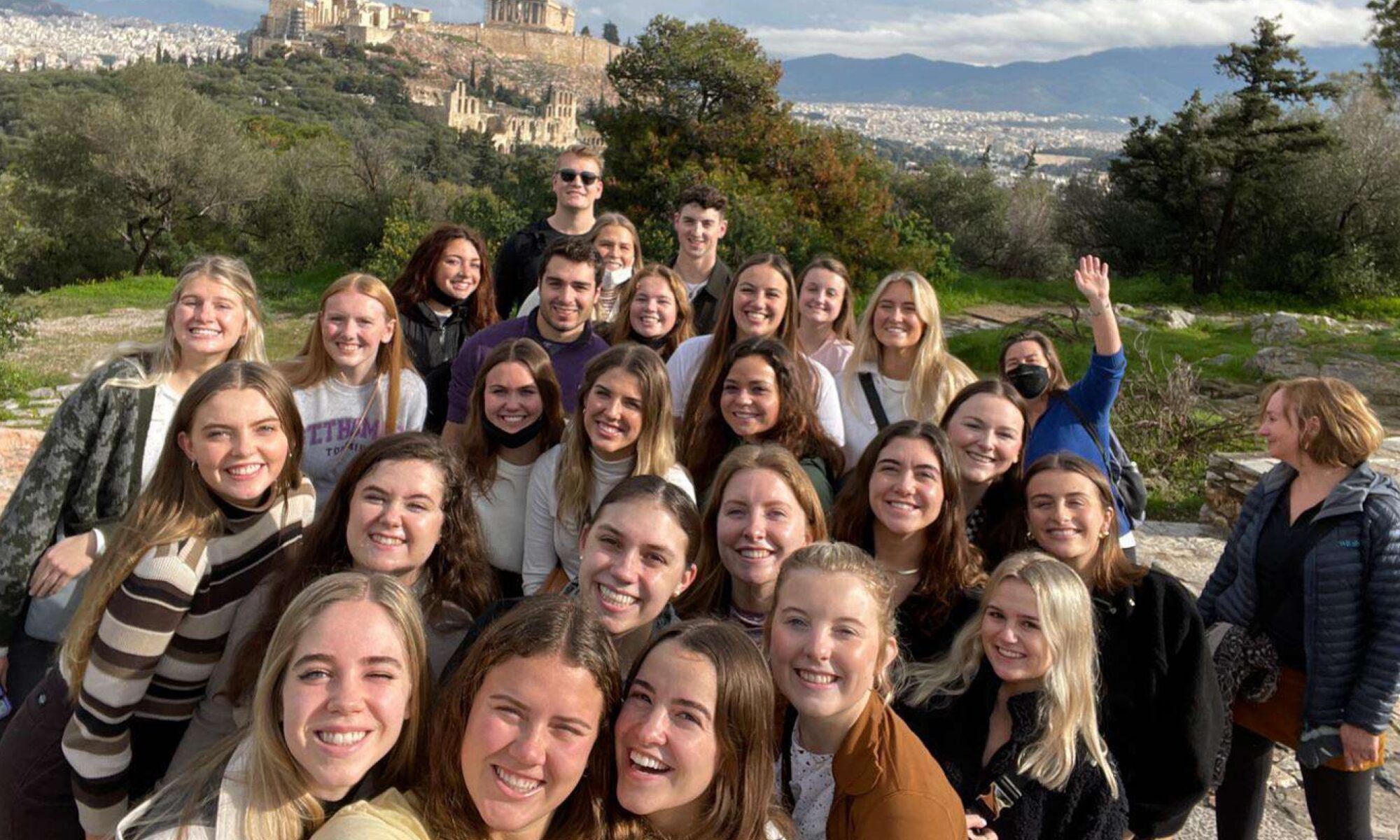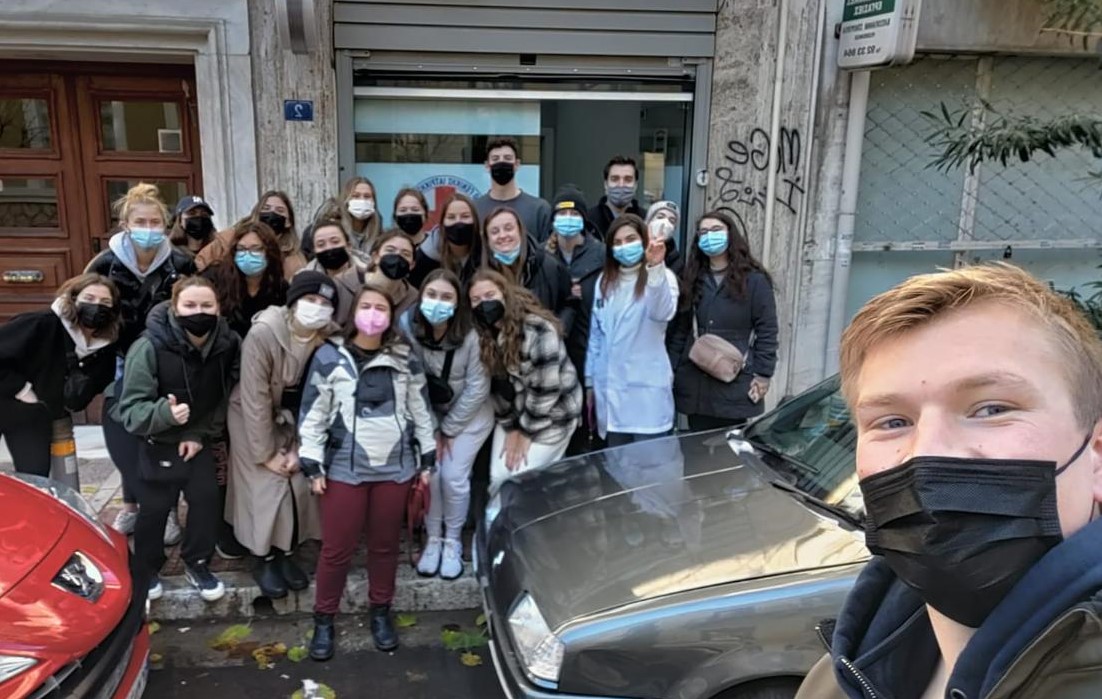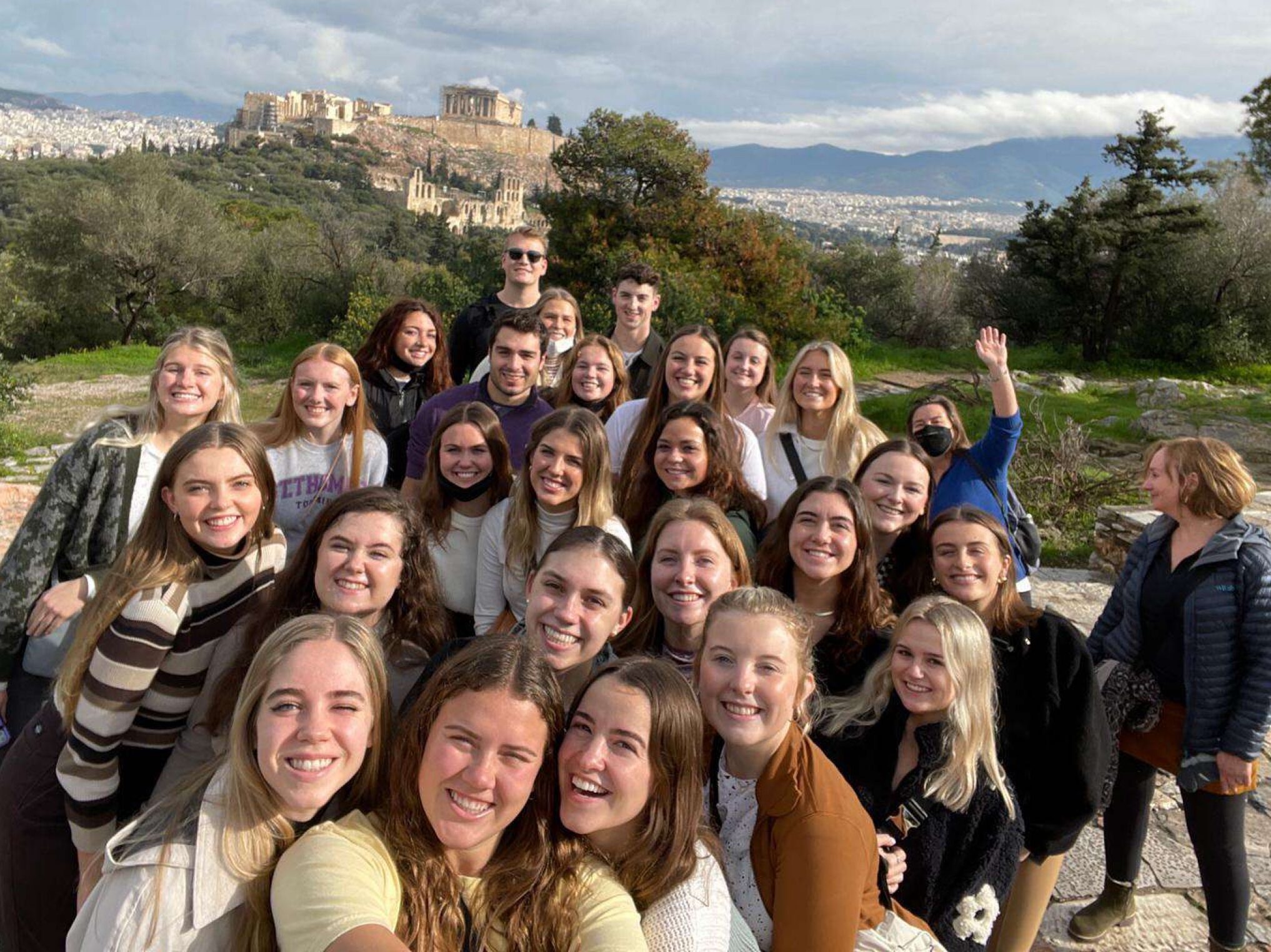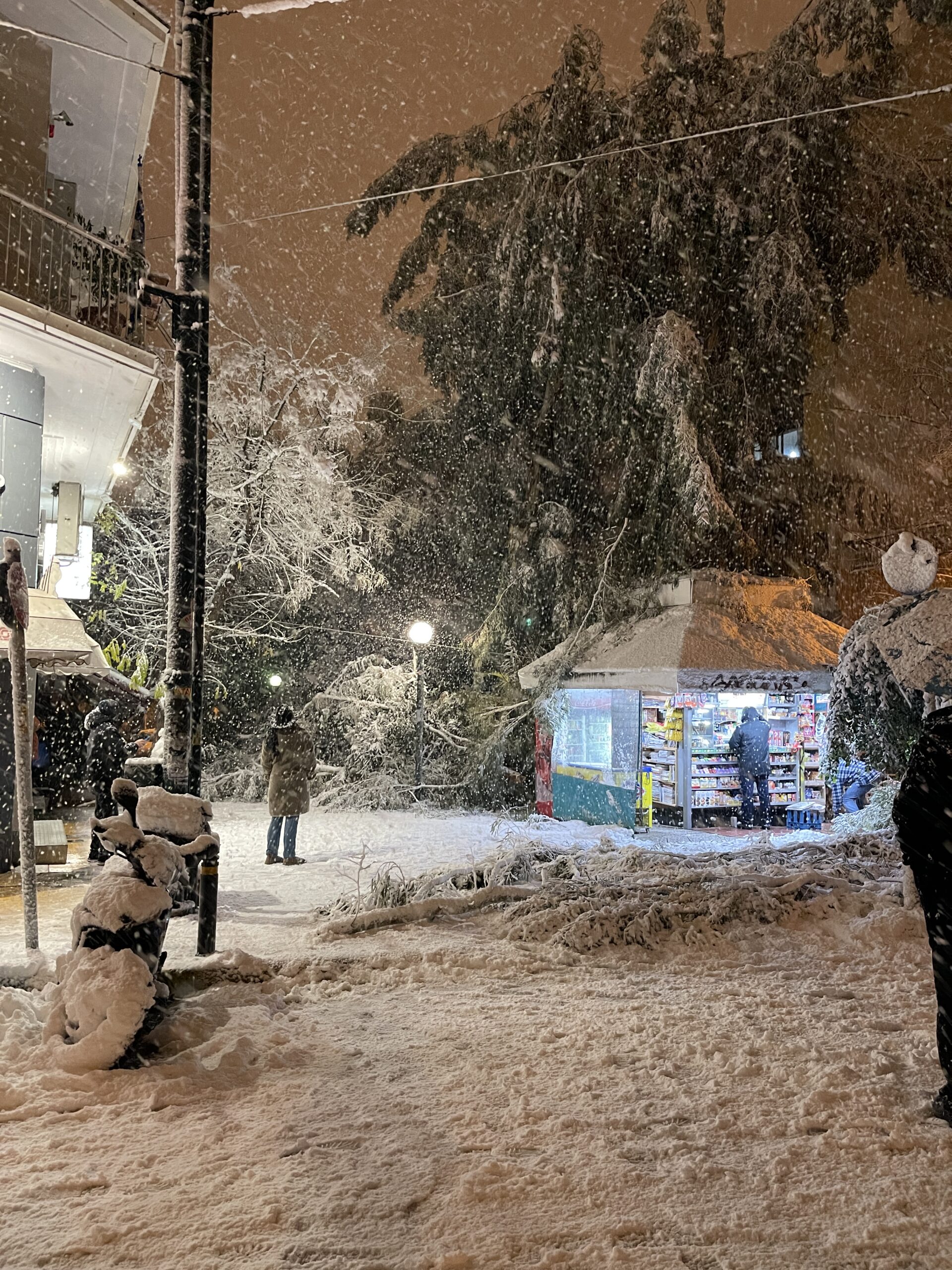St. Thomas students’ January Term trip to Greece went from “wonderful” to “absolute chaos” when five students had to stay behind after testing positive for COVID-19 days before their flight home was scheduled, causing some to miss two days of spring semester classes.
“The trip of a lifetime became utter chaos and destruction; it was crazy,” junior Shannon McWilliams said.
The trip started with all 26 students and two faculty members testing negative for COVID-19 before boarding their flight to Athens, where the students would spend the month taking English professors Amy Muse and Elizabeth Wilkinson’s Performance in Society, Sport and Theater class.
“For all of us – both the 26 students and both faculty – to test negative before we left, we thought was a wonderful omen,” Muse said.
Then, on Saturday, Jan. 22 – just four days before the group’s scheduled flight home – a student told Wilkinson that she had tested positive with an at-home rapid test. Muse recalled the “crazy” evening as “one that feels like it can only happen in Greece.” McWilliams described the night as “absolute chaos and paranoia.”
The students had a free evening, with many eating dinner and some getting tattoos around the city, according to Muse. However, within 30 minutes the entire study abroad group gathered outside of a pharmacy at 8 p.m. to get rapid tests.
“The pharmacy was just about to close, and there was just one pharmacist in there,” Muse said. “She stayed open until 11 to see everybody, to test every single one of the people in our group.”
Of the 26 students, three tested positive for COVID-19. Senior Sarah Ziemann, roommate of the first student to test positive, was surprised by her negative test result.
“We were all kind of left in shock because we had all been hanging out together,” Ziemann said. “We tried to be as distanced as we could, but the three girls who tested positive had three roommates.”
The COVID-positive students were then forced to move into quarantine apartments that were separate from the location the group was originally staying.
“All of this was happening late at night on a Saturday after grocery stores were closed, after most things were closed, so we were scrounging all of our Clif Bars and (saying) ‘here, here’s some stuff for tonight,’” Muse said.
The group was “pretty on edge” the next day, Ziemann said, so it decided to cancel a day trip to Delphi that was scheduled for Sunday, Jan. 23.
In the days following, two more students tested positive and were moved into quarantine apartments. Muse stayed in Athens with the quarantining students and became the students’ liaison to the outside world, bringing them coffee, food and COVID-19 tests.
While the coronavirus didn’t keep the main group of students from returning home on their Jan. 26 flight, a snowstorm on Jan. 24 did, causing flight delays, falling trees and leaving parts of Athens without power.
“Athens almost never has snow,” Muse said. “This was a real blizzard and, because the city is so hilly and sidewalks are made of stone and marble, not really textured concrete, so it’s super slippery.”
The main group of students, including McWilliams, flew back to Minneapolis on Thursday, Jan. 27, while the three students who first tested positive on that late Saturday night flew back on Jan. 29 after testing negative. Muse and two students, including Ziemann, still remained, awaiting their Greece-mandated five day quarantine to end.
“The rules are that once you test positive, you have to quarantine for five days, and then you can try to either test negative again or get a ‘certificate of recovery,’” Ziemann said.
Neither of the remaining students tested negative following their five-day quarantine, which forced them into the certificate of recovery method. The method required the students to be cleared by a licensed healthcare provider by presenting the necessary information to them.
“A lot of Greek doctors were not willing to sign off on something like that, so we ended up getting it from an American doctor that I know,” Ziemann said. “I just had a doctor sign off that I had been quarantined for five days and was asymptomatic and I was cleared to travel.”
The Greek government doesn’t accept this method for incoming travelers until 14 days after a positive test, but since the students were traveling out of Greece to the United States, the group thought the certificate would work.
“When we were standing in line to get our boarding passes, the students are feeling a little anxious about this,” Muse said. “It all went just fine, luckily. Then, that felt like the great relief.”
Finally, the students and Muse boarded their plane back home on Tuesday, Feb. 1, with just two days of class missed.
“Pretty much every day I stayed got harder and harder, and, when I initially tested positive, it was awful,” Ziemann said. “I felt pretty much every emotion possible as far as excitement for going home and happiness to finally be here (and) scared because I was so far away from my family and home, so it’s nice to be back.”
Cam Kauffman can be reached at kauf8536@stthomsa.edu.
Scout Mason can be reached at maso7275@stthomas.edu.







We couldn’t be more relieved to have our Grandaughter home. G & G Ziemann